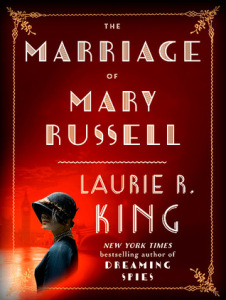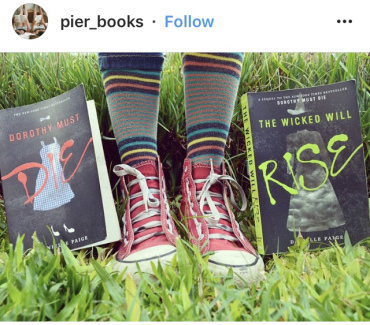Often there’s a lag between the time we read good advice in books and when we choose to apply it.
In between that time we can easily forget what that good advice was or when/how to use it appropriately.
For example; if you read a book before you fall asleep each night and it’s a non-fiction self-help type book (I’m guilty of this all too often) then it’s hard to put into practice *some people say it’s not good to read non-fiction before bed and maybe this is why but then again I have my reasons which are outlined below* the great advice you’re learning about, let alone remember it.
Then, say there comes a time when you’re trying to recount a) facts that’d impress your friends or b) helpful advice that would reallly help you make that tough decision. Wouldn’t it make life so much easier if we made a proper referencing system so we could easily locate those golden nuggets of information when we need it most.
I’m currently reading a book I got for xmas called The Happiness Project by Gretchen Rubin and I’ve started indexing all the helpful tips and advice (there’s loads!) so that I can use them in the coming months when I inevitably feel a bit down or stressed out. Accessibility is the key here; I could easily just read the book once, from cover to cover without any annotations or markings, making sure it’s kept in pristine condition and thereby showing I look after things I care for well but there’s little point in that. Honestly though, that is doing little to help me later as it’s very time consuming trying to relocate something that is effectively lost. How much time do people waste looking for something they’ve lost when they desperately need it because they didn’t put it in it’s rightful/handy place? I’m not saying it isn’t tedious at times reading a book and having to stop and conduct the process of indexing info so that it’s in it’s most easily accessible place, but as they say, it’s easier to live a hard life and harder to live an easy life (great quote I just had to find somewhere to slot it in hehe). It feels very fulfilling once I’ve completed indexing each chapter at the back of the book and it really is a gift that keeps giving. Some like me might argue that it’s a small amount of short-term pain for a large amount of long-term gain, as long as you take care indexing advice that you find is specifically helpful and undilute. With that in mind here’s a look at how I’ve started indexing. If you’ve got any ways you index a book that you’d like to share then I’d be very interested to know and would love it if you made a comment in the section below. I’ll admit my own system is new and imperfect but what’s more important is that it’s a starting point on which anyone can improve upon.
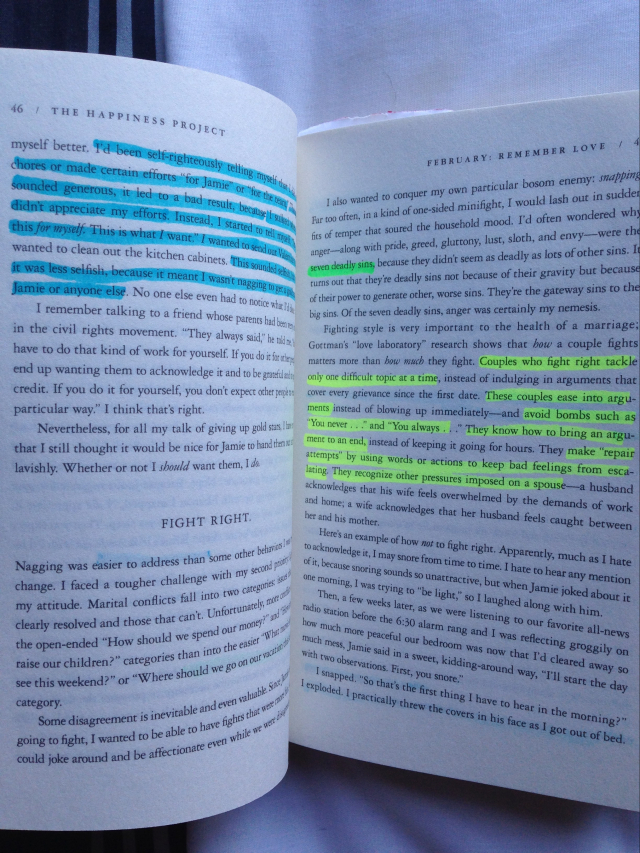 What do the different colours mean and are you reading about marriage advice?! (Hope Gretchen doesn’t mind me giving you a sneaky peak into her amazing book)
What do the different colours mean and are you reading about marriage advice?! (Hope Gretchen doesn’t mind me giving you a sneaky peak into her amazing book)
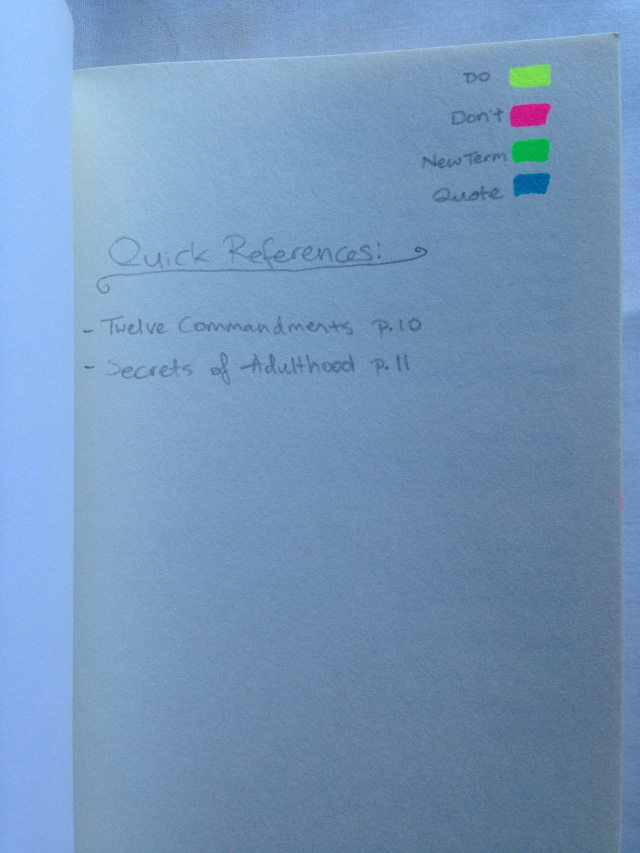 Oh there’s a highlighting key and quick references on first page. Handy!
Oh there’s a highlighting key and quick references on first page. Handy!
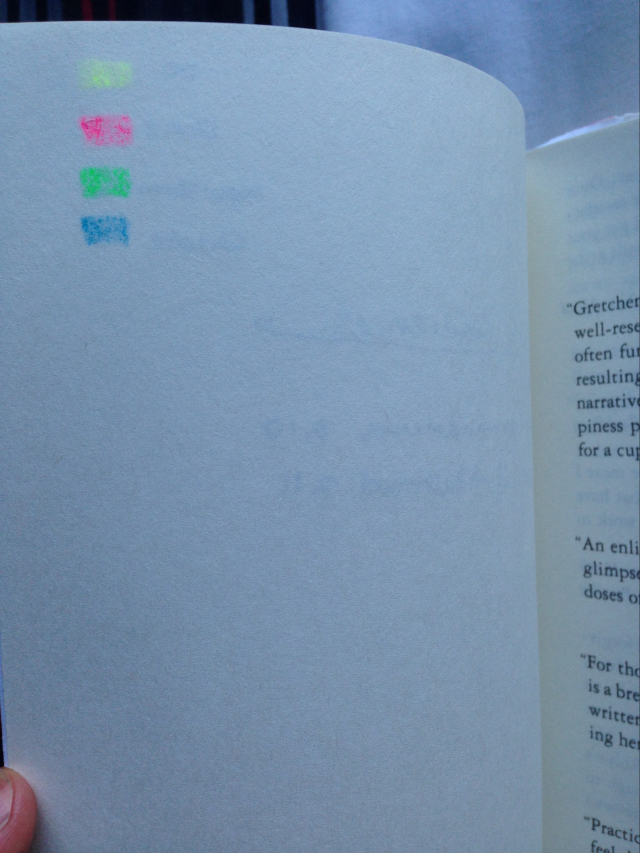 The opposite page: “oh no it bleeds!” (Don’t let it ruin ur day)
The opposite page: “oh no it bleeds!” (Don’t let it ruin ur day)
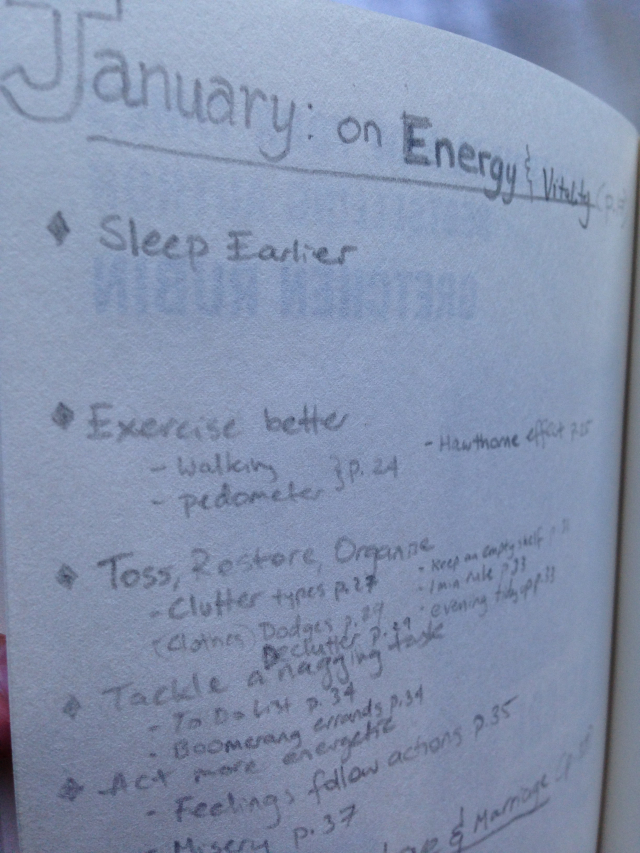 An example of how to index (tailored to the particular book)
An example of how to index (tailored to the particular book)
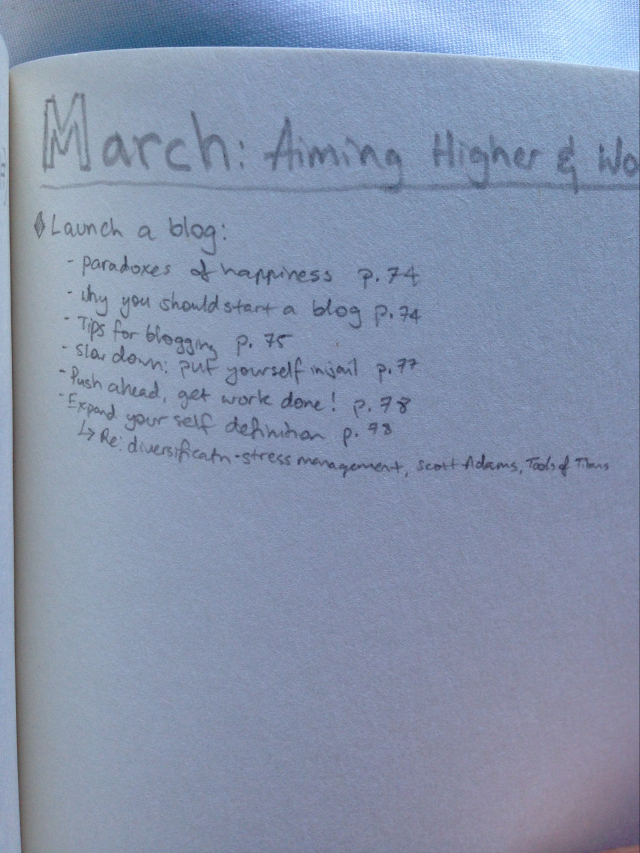 March’s a bit easier to read so far… also go start a blog haha
March’s a bit easier to read so far… also go start a blog haha
I guess it’s relevant to mention how I’m reading this book: I try to read roughly a chapter each night before bed, stopping at a convenient spot and then picking up where I left off, essentially in a cover to cover fashion. Then during the day, I go back over the chapter and try to index the helpful points I came across at the back of the book, writing down which section of the book it came from, the best term for what’s being indexed and the page number it can be reviewed upon. I am a fairly slow and easily distracted reader so it is important to set aside a good 30-40 minutes and even if I don’t finish indexing the chapter there’s still a sense of accomplishment and satisfaction in knowing what has been indexed will be easily accessible later down the track when I need to access that information quickly. Important to note also that what I’m doing is isolating tasks; reading a chapter first and then indexing separately as this reduces the disruption of flow and allows me to focus on one task at a time (multitasking is not something I’m good at, nor want to be).
As I’ve mentioned this indexing system has been tailored for Gretchen’s book but there are lots of other ways to reference based on preference. I could also have done a simple alphabetical order index, which admittedly would not have been simple because I’d have to do a lot of rubbing out with the pencil and rewriting… I could also have used a different highlighting system but the one I chose was yellow for actionable advice (most of the highlights so far have been yellah), pink for not to do advice (haven’t really used this yet), green for a new term/concept (lots pop up in the book and referring back to the name helps me remember them) and blue is for a quote or passage that I’ve enjoyed reading for various reasons.
I found books in the self-help genre to be most rewarding when they have an index and making your own is a worthwhile exercise in active learning and the merits of patience. I hope this has inspired you to take better care of the advice you have received and wish to call upon quicker and good luck!
Advertisements Like (if you liked it), reblog or share this post with someone you think would enjoy or benefit from reading. Also feel free to comment if you'd like to start a conversation. Thank you for reading